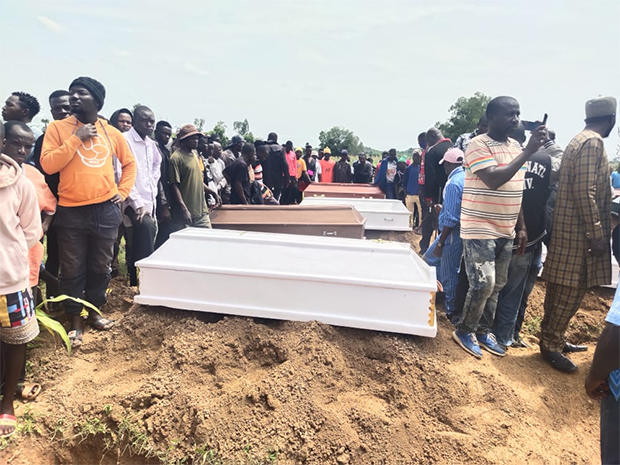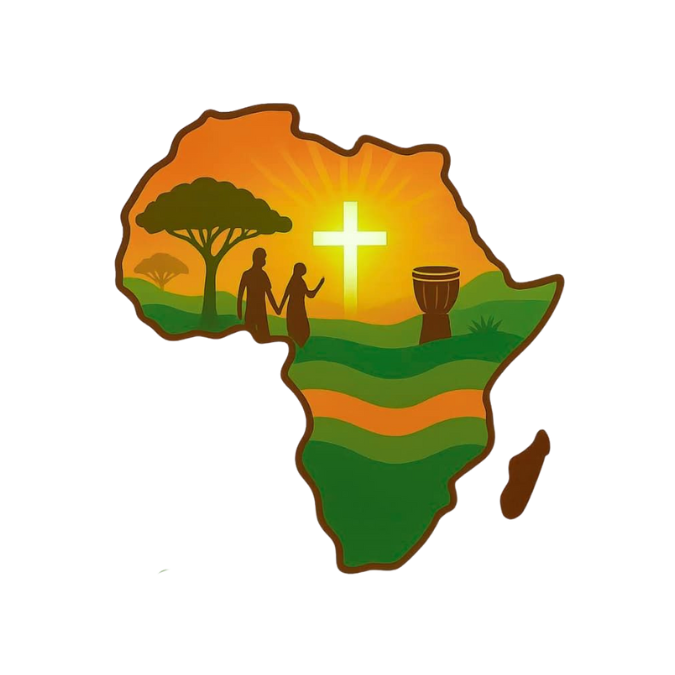
The recent reflections of Bishop Matthew Hassan Kukah in Rome and Bishop Wilfred Anagbe’s powerful testimony before the U.S. Congress in Washington have reopened one of the most urgent moral questions of our time: Are Nigerian Christians persecuted? Their differing tones—Bishop Anagbe’s cry from the valley of suffering and Bishop Kukah’s call for nuance and hope, reflect the two sides of one wounded reality. The Church in Nigeria walks daily between pain and resilience, between the cry for justice and the duty of reconciliation. To ask whether Christians in northern Nigeria are persecuted is not to sow division. It is to name a truth long ignored, and to begin the process of healing a nation bleeding silently.
The Pain That Cannot Be Denied
The Nigerian Church, especially in the north, has lived through fire. Across Benue, Plateau, Southern Kaduna, Taraba, and Borno, thousands have been killed, abducted, or displaced. Priests have been kidnapped from their altars; worshippers massacred at Sunday celebration. Churches and rectories have been burnt to ashes. Families still live in camps for the displaced, while justice moves slowly, if at all. This is not propaganda; it is testimony, verified by the lived experience of pastors like Bishop Anagbe, who daily buries the dead and consoles the broken. To call this situation persecution is not to politicize it, but to tell the truth with moral clarity.
Perhaps, what is happening to Christians in Northern Nigeria may not yet meet every legal criterion for genocide; however, it certainly represents a grave, systematic, and sustained persecution that has genocidal tendencies. And as history teaches, denial is the seed of disaster. When societies refuse to name suffering, they prepare the ground for greater violence.
It is in this context that the proposal to designate Nigeria as a Country of Particular Concern (CPC) under the U.S. International Religious Freedom Act must be understood, not as a harsh diplomatic insult, but as a moral necessity. A CPC designation acknowledges that serious violations of religious freedom are occurring and demands structured international engagement to address them. Far from stigmatizing Nigeria, such recognition could awaken both local and global consciences to the urgent need for reform, justice, and interfaith Dialogue.
It is important to note that Bishop Matthew Kukah has expressed reservations about such a designation, not because he denies the suffering of Christians, but because he fears it could harm the delicate fabric of interreligious coexistence and close the door to constructive Dialogue between Christians and Muslims. In his view, Nigeria’s wounds are best healed from within, through Dialogue and mutual understanding.
Yet, as painful as the situation is, the reverse may in fact be true. Acknowledging persecution from the outside does not destroy Dialogue; it purifies it. Silence in the face of injustice does not build peace; it breeds resentment. The CPC designation could actually strengthen Dialogue by compelling both Christians and Muslims to confront the truth together, and to seek justice as a shared national mission.
For too long, the cries of Christians in Nigeria have gone unheard or explained away as “communal clashes” or “banditry.” A CPC designation gives moral visibility to their suffering and affirms that their lives matter before the international community. It restores voice to those who have been silenced. Governments respond to pressure. When a nation is named a “Country of Particular Concern,” it triggers human rights dialogues, policy reviews, and increased scrutiny of military and security actions. This can strengthen local advocacy for justice and transparency, benefiting not only Christians but all persecuted Nigerians, including Muslims and ethnic minorities.
Some fear that such a label will damage interfaith relations. In truth, denial does far greater harm than acknowledgment. Healing begins only when truth is told.
When both Christians and Muslims confront the reality that violence committed “in the name of God” dishonors God, Dialogue becomes genuine, not polite. The CPC designation would not pit faiths against each other; it would challenge all believers to protect the sacredness of every human life. Recognizing persecution early is an act of prevention. The world’s worst genocides began with denial and inaction. By acknowledging now that religiously motivated violence exists, the international community can work with Nigerian leaders and faith communities to strengthen education, disarm hate groups, and rebuild trust.
Why Recognizing Persecution Heals the Nation
The Church does not ask for pity but for truth. When the world names the suffering of Nigerian Christians honestly, it also names the pain of Muslims who are victims of the same broken system of corruption, bad governance, and the manipulation of religion for political gain.
Naming the wound does not divide Nigeria; it unites all who desire peace. Silence, on the other hand, empowers extremists and weakens moderates on both sides.
A CPC designation could therefore create a shared moral urgency, calling both Christians and Muslims to face their mutual responsibility for the nation’s future. It can spark deeper cooperation between the Nigerian Inter-Religious Council (NIREC), faith-based peacebuilders, and international partners. The role of the Church is not to shame the state but to bear prophetic witness and to speak the truth that sets people free. The prophets of the Old Testament named the sins of their nation not to condemn, but to heal. To call the persecution of Christians by its name is an act of pastoral fidelity. It says to the world: “These are our brothers and sisters; their blood cries out to God.” It speaks to the Nigerian state: “You cannot build unity on silence.” It says to Muslims of goodwill: “We believe in you and with you that peace is possible, but truth must guide it.”
Some assume that recognizing persecution will poison coexistence. Yet authentic Dialogue begins only when injustice is acknowledged. False peace built on denial is fragile; true peace grows from repentance and conversion. If Nigeria is designated a CPC, it will challenge Christian leaders to speak with humility, not triumphalism, and Muslim leaders to rise in defense of their Christian neighbors as partners in peace. Both faiths can then engage in what Pope Francis calls “the dialogue of fraternity”, where believers, without fear or defensiveness, work together to disarm hatred, care for the poor, and rebuild communities destroyed by violence. Thus, the CPC designation would not be the end of Dialogue, but its rebirth.
A Call to Courage and Hope
So, are Nigerian Christians persecuted? Yes, and the world must now admit it. Not to shame Nigeria, but to save her. Designating Nigeria as a Country of Particular Concern is not an act of hostility; it is a call to conscience. It will affirm the dignity of victims, compel accountability, and invite Christians and Muslims alike into a new era of honest Dialogue and shared responsibility.
Now is the time for the Church, the nation, and the world to speak the truth in love, to avert future tragedy and build a peace grounded in justice and truth.
As always, the final word is not despair but hope. From the blood of martyrs, a new faith rises. From suffering, solidarity. From truth, reconciliation. Nigeria’s destiny is not destruction but resurrection, if only we dare to face our wounds and the faith to walk together toward healing.



